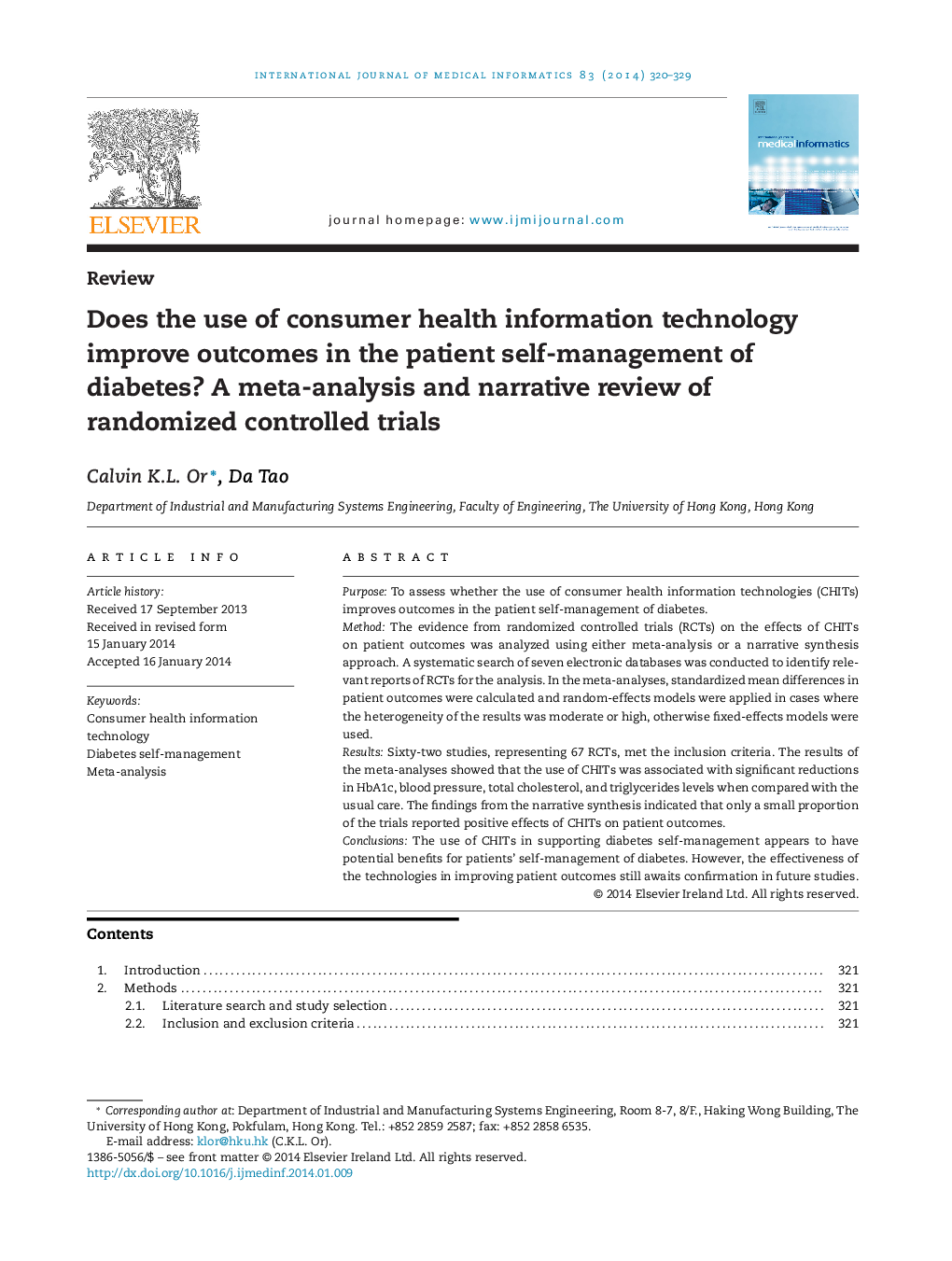| Article ID | Journal | Published Year | Pages | File Type |
|---|---|---|---|---|
| 516189 | International Journal of Medical Informatics | 2014 | 10 Pages |
•The effects of CHITs on many patients’ outcomes were not previously reviewed.•This review expands our knowledge of the effects of CHITs on those outcomes.•Different from some previous reviews, the quality of the present review is warranted.•CHITs have potential benefits for diabetic patients’ self-management.•However, their effectiveness in improving some patient outcomes still awaits confirmation.
PurposeTo assess whether the use of consumer health information technologies (CHITs) improves outcomes in the patient self-management of diabetes.MethodThe evidence from randomized controlled trials (RCTs) on the effects of CHITs on patient outcomes was analyzed using either meta-analysis or a narrative synthesis approach. A systematic search of seven electronic databases was conducted to identify relevant reports of RCTs for the analysis. In the meta-analyses, standardized mean differences in patient outcomes were calculated and random-effects models were applied in cases where the heterogeneity of the results was moderate or high, otherwise fixed-effects models were used.ResultsSixty-two studies, representing 67 RCTs, met the inclusion criteria. The results of the meta-analyses showed that the use of CHITs was associated with significant reductions in HbA1c, blood pressure, total cholesterol, and triglycerides levels when compared with the usual care. The findings from the narrative synthesis indicated that only a small proportion of the trials reported positive effects of CHITs on patient outcomes.ConclusionsThe use of CHITs in supporting diabetes self-management appears to have potential benefits for patients’ self-management of diabetes. However, the effectiveness of the technologies in improving patient outcomes still awaits confirmation in future studies.
